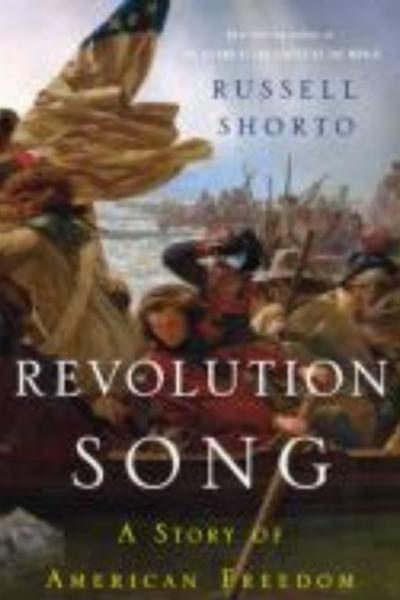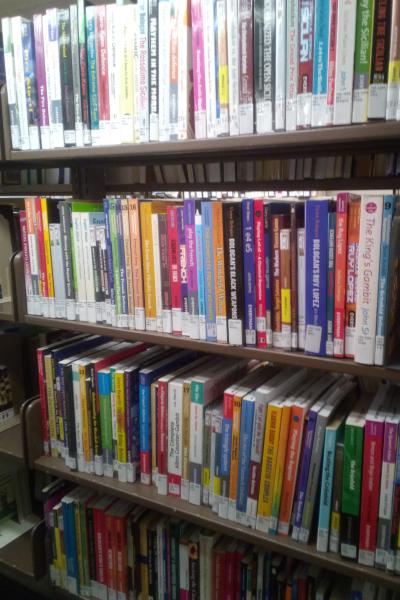
Americans celebrate Independence Day with many patriotic displays, including parades, fireworks, and civic events. On July 4 we remember the many Americans who sacrificed their lives to make the United States a free country. Many of us will celebrate the holiday with picnics and barbecues, baseball games, family reunions, reading, and other enjoyable activities.
Perhaps you'd like to know more about this momentous holiday. On July 4, 1776, Congress declared that the original 13 American colonies were no longer subject to Britain. They were deemed united, free, and legally separated -- independent states forevermore.
MI's Library collection includes many books about the birth of our nation and the American Revolution. This is a perfect time to explore our reading list of staff-picked patriotic titles. Find even more books on United States history under the Dewey classification number 973.31 on Balcony 2A. Drop into the Library anytime between 12-4 pm on Mondays, Wednesdays, and Fridays, and on Tuesdays and Thursdays from 2-6 pm. No appointment is necessary.
Russell Shorto - Revolution Song : a story of American freedom 973.3 S56r
The author takes us back to the founding of the nation, drawing on diaries, letters, and autobiographies of six very different figures weaving them seamlessly together into an engaging account of the American Revolution. The six lives include a man who freed himself and his family from slavery as well as a rebellious woman who abandoned her abusive husband to chart her own course.
Holger Hoock - Scars of Independence : America’s violent birth 973.31 H776
Hoock shows how the American Revolution is often portrayed in a whitewashed manner as an orderly rebellion with brave Patriots defending their noble ideals against what they considered an oppressive empire. Hoock's account of America’s founding indicates that the Revolution was not only a high-minded battle over principles, but also a violent civil war, one that shaped the nation. He provides a more accurate appraisal, revealing tensions between moral purpose and the violent tendencies of the past.
 T. H. Breen - The Will of the People : the revolutionary birth of America 973.31 B83w
T. H. Breen - The Will of the People : the revolutionary birth of America 973.31 B83w
This book shows how ‘the will of the people’ is what created the nation. The author presents many stories that capture the powerful sense of equality and responsibility resulting from this process of self-determination.
Tom Shachtman - The Founding Fortunes : how the wealthy paid for and profited from America’s Revolution 973.31 S524
The author shows that a successful revolution depended on participation by the common man but was preceded by wealthy colonials who united to disrupt the very system that had enriched them. The book features a dozen notable Revolutionaries who affected the finances and birth of the new country while making and losing their fortunes. This book provides a riveting history of economic patriotism.
Pauline Maier - American Scripture : making the Declaration of Independence, July 4, 1776 973.31 M21
The author presents the Declaration as the defining moment of our national identity as well as the moral standard that shaped a young nation. She describes the tortuous struggle by which Americans achieved iIndependence.
Thomas P. Slaughter - Independence : the tangled roots of the American Revolution 973.311 S63
A century before 1776, the author explains how the long process of revolution actually began fomenting in the colonies. Slaughter examines why these revolutionary ideas permeated the colonies’ laws, commerce, social structures, religious sentiments and political interests, and other ways in which the struggle toward independence manifested itself.
Sophia A. Nelson, Esq. - E Pluribus One : reclaiming our founders’ vision for a United America 973.31 N424
A how-to guide on citizenship and political leadership. Nelson's book is brimming with straightforward talk about our founders’ vision of unity and how America became stronger through diversity.



